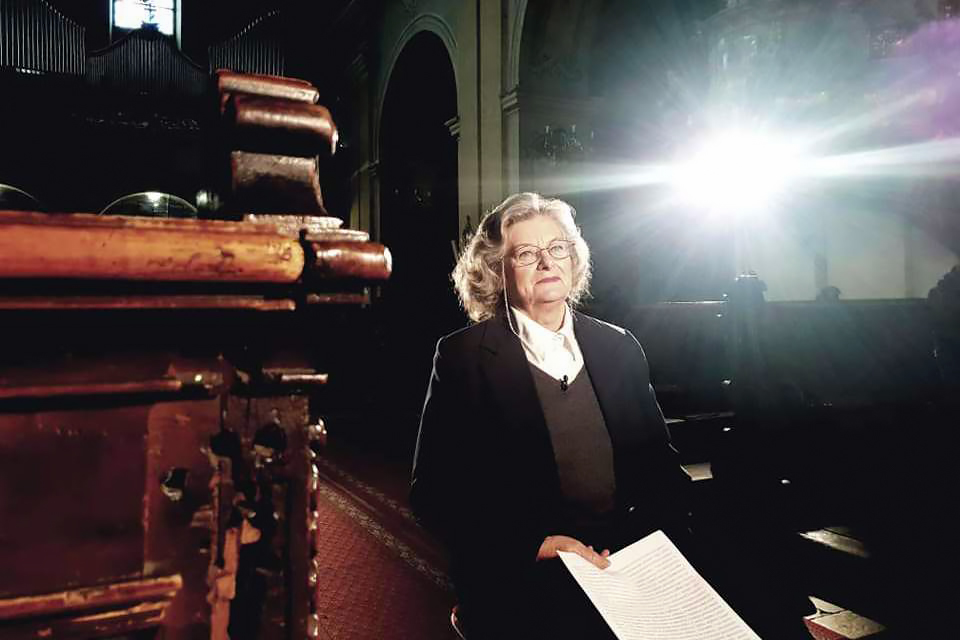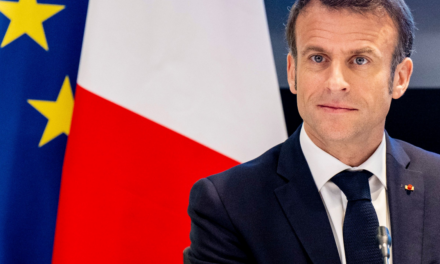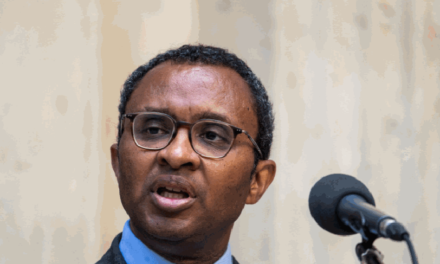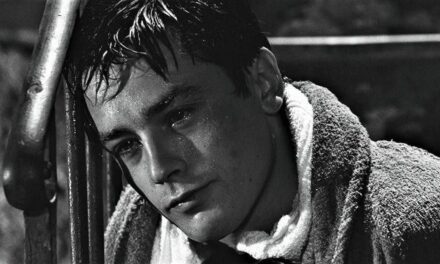Within the ranks of the CÖF Klub Miskolc civil organization, he is referred to as dr. Krisztina Várhelyi as the real motor of the community. They do not add that, but it is an undeniable fact that it does not belong to just one NGO. If it were not to be misunderstood, it should be phrased like this: it is not simply a motor, but rather a tireless robot.
I think so because his work ethic amazes me. If my information is correct, you assumed a significant role in the founding and operation of at least 16 civil organizations.
Indeed, just last year I thought about who and in what way I worked with over the years and yes, we can talk about roughly 16 civil companies. I think I managed to do a fair job in all of them. Most recently - and everyone who took part can be very proud of this - we organized the 9-day Ars Sacra festival in Miskolc, the success of which involved 17 NGOs working together and containing at least 50 programs. The ecumenical festival, conveying Christian values, was a great success and became the main event of the city. Of course, I didn't work alone, that would have been impossible. However
a real civic event was put together. However, we started the organization without a single penny.
I contacted my artist friends and fellow civilians, and when I told them what it would be about, everyone said yes to the first call. This is how we were able to put together really high-quality programs that have been talked about in the city ever since. In fact, strangers call me on the street or on the tram, people who don't even know my name, but congratulate me on the event or thank me for bringing it together. There can be no greater reward for my work than this.
To be honest, I can't even imagine how you can put together such a big event from nothing - since you mentioned that they didn't have a penny for the festival.
With enthusiasm and joint work, as can be expected from civilians. Everyone invested their personal work in the organization. One of them took care of the music part, the other took care of the fine arts, another took care of the literary programs, or even the church events, and there was someone who was responsible for the media. The bottom line is that we personally approached all possible participants. All of the organizers are professionals in their field, and this time they worked on a friendly basis and helped me in everything. You wouldn't believe until you try how much work is involved in organizing such an event, how difficult it is to keep everything under control, manage, accept programs, organize, find a venue and take a thousand other things into account. Imagine that more than four hundred actors performed at this Christian festival in Miskolc, and during the organization we had no idea how much we would manage to reach people, whether many or few people would come, would the people of Miskolc be interested in the event at all? But we said, either way, our conscience is clear because we serve a good cause and convey Christian values. In hindsight I can say
the invested work was worth it, because more than 10,000 people came and the Ars Sacra festival became an almost defining event in Miskolc.
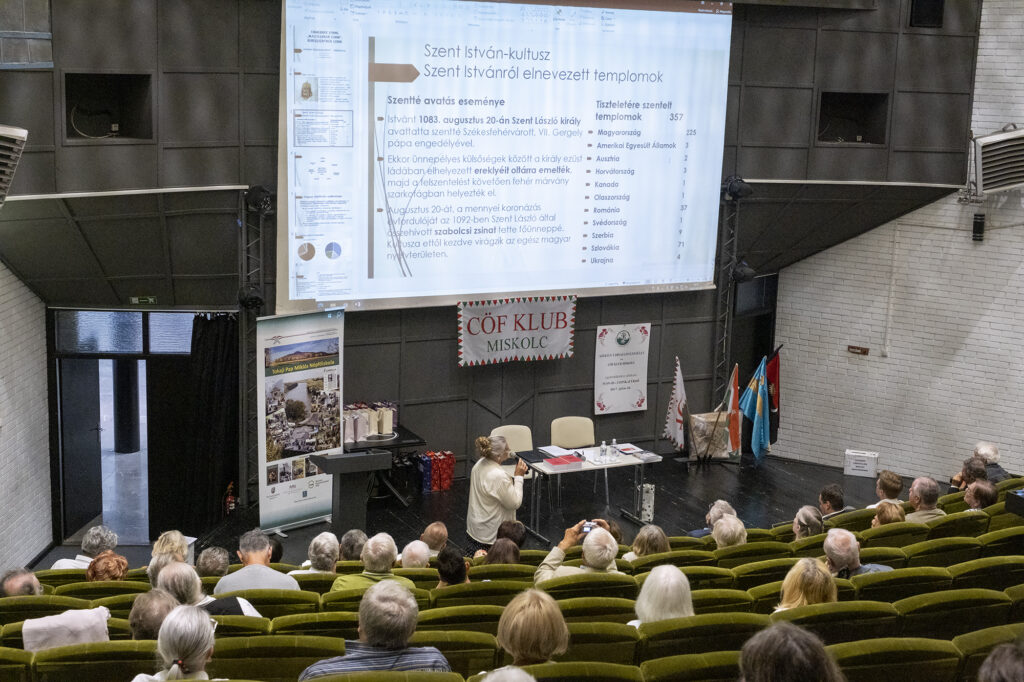
CÖF Club Miskolc, presentation by Krisztina Várhelyi 2023 / Photo: civilek.info
The organization of the festival is only one, albeit significant, civic work. But over the years, he participated in the work of many other civil organizations in many other fields, and even founded such communities himself.
There are non-governmental organizations related to sports, I worked in the Gymnastics Federation, the World Hungarian Federation, when it was still headed by Sándor Csoóri, which I felt was a huge honor just because of his personality. Even later, I took a role in many civil organizations that serve the cause of Hungarians. Such is the Magyar a Magyarért Foundation, the Pro Hungaria foundation, in both of which I hold a senior position and, of course, I also participate in civil life here in Miskolc. I have an excellent relationship with the CÖF Klub Miskolc organization and its leader, Attila Lengyel, we organize many joint programs together.
There is no question that faith is a very important part of your life, so let's not forget that you were the advocate and then the founder of the Miskolc group of the Association of Christian Intellectuals, i.e. KÉSZ.
In 1993, yes. At that time Dr. Ernő Kartal, the parish priest of the Minorite church, was a well-known and charismatic figure in the life of the city. I suggested to him what he would say if we founded the organization of KÉSZ in Miskolc, and of course the father supported the idea, and for a long time he assumed the presidency of the church. As a board member, I helped in whatever way I could. The Éltető Lélek Foundation was also established in the Minorite church, of which I was the president for a long time. I'm not in charge anymore, I've passed the baton on to my successors, but I'm still there in the background. Among other things, we are working to achieve the beatification of the proselyting minority father Kelemen Didák, by promoting and spreading his veneration. He arrived in Miskolc in 1730 and lived here until his death. At that time, he was a dominant figure in the city, he founded the Miskolc Minorite church, convent and school, along with many other churches. We maintain and guard his respect and cult to this day, and as I said, we want to achieve his beatification.
I still don't understand how you have time for everything? As far as I know, you are an economist, which in itself is a very busy job. She has a family, which in the case of women requires a lot of time and energy, because the woman is the soul of the family. How is he able to take on so many civilian tasks as an encore?
God has gifted me, given me strength, which is still undiminished to this day.
Somehow I don't get tired of it, even though I work a lot. And the family gives a lot of joy, of course, a lot of tasks. I have seven grandchildren, and I follow and help their lives as much as possible in this fast-paced world. As for non-civilian work, I tried my hand at many jobs. I was the head of the health department of the County Self-Government, I worked in the minister's cabinet, and I dealt with health matters there as well. During the first Orbán government, when the Population Government Committee was established, I worked as a department head at the Prime Minister's Office. At that time, the preparation of the family support systems began, and I also participated in that. I was an employee of the Strategic Analysis Center, where I also dealt with topics related to health, so I always had plenty of tasks.
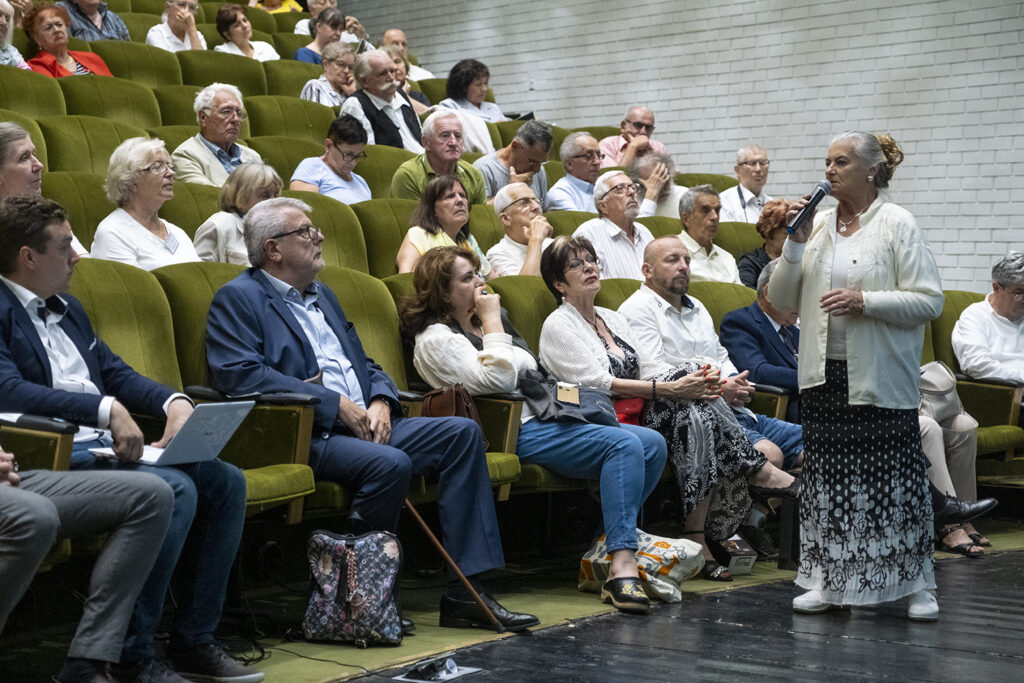
CÖF Club Miskolc, presentation by Krisztina Várhelyi 2023 / Photo: civilek.info
For a believer, the beginning of the 21st century can even be alarming. The persecution of Christians is intensifying all over the world, desegregation is going on at full speed in Europe, and although the situation is not so bad in our country, anti-Christianity is already being experienced.
It is a fact that few people go to church regularly, which I think and according to research, the reason is not that people have become unbelievers, but that the energy of the young and middle-aged is diverted by the thousands of problems of starting and maintaining a family. But I would not measure faith by the frequency of going to church, but by, for example, what I experienced during the papal visit or the success of the Eucharistic Congress. It was refreshing to see so many enthusiastic young people and to experience that their faith is indeed strong. Of course, a huge task falls on the church leaders, parish priests, pastors, and leaders of the congregations, because people must not be left alone, they must be addressed personally, they must be reached, and that is terribly tiring and time-consuming. But it's possible. How? I am thinking, for example, of the aforementioned Ars Sacra festival or similar events,
these are not only good for attracting people with colorful programs, but also for awakening in them the need for Christian communities.
He may be right and now he has given me hope. I shouldn't draw conclusions from the primitive insults on social forums either, because they are frustrating, much more from the events you mentioned, or from the experiences gained at the Peace Marches, where many young people stand up for Christian-conservative ideas.
I don't usually look at any kind of comments, I don't deal with expressions on social platforms. I know what my values are and I don't let them influence me. Neither my faith nor my own values. Maintaining one's own faith also requires enormous efforts in today's fragmented world, so we should not be concerned with things that actually have nothing to do with us.
Faith is genetically instilled in us, our task is not to let it slip away.
We have already discussed that civic activity requires a lot of strength and endurance, and even dedication. But let's also add that it's not very profitable, to put it mildly.
I have six or seven professional qualifications, I'm not exactly good at counting, and I needed some in civilian life. However, maybe one or two of these proved to be useful at my workplace, even though I always tried to acquire the knowledge that was related to the specific work area. In other words, the acquired knowledge was more important in civil work than in civil occupations.
Civilian work usually requires extensive knowledge, it is a very difficult task, it also requires sacrifice, because it is not typical that you can earn money with it.
When I started working with NGOs, I didn't do much math, but when I started working for the foundation, I realized that, oops, this is going to cost me a lot. Car use, fuel, parking, etc. It turned out that over the past years I spent more than one and a half million forints of my own money. I had to wake up to the fact that it doesn't work that way. The work invested is fine, but not enough to even pay for it. Fortunately, there are applications that provide support for the operation of civil organizations, but I say that this area deserves even more attention and respect. Both social and financial.
Author: György Tóth Jr
Cover photo: Facebook

